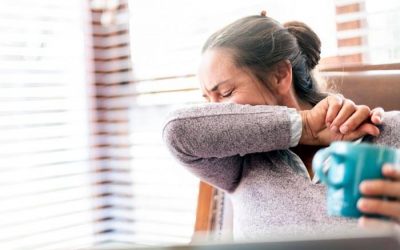Everyone knows how important diet and exercise are for maintaining good health. Avoiding sleep deprivation and getting a good night of rest is just as important because it affects every aspect of our health. Restful sleep improves brain performance, mood, and well-being. It helps keep our immune systems strong and ready to fight disease. It reduces stress and supports healthy metabolism. It even lowers the risk of debilitating chronic diseases such as heart attack, stroke, and dementia.
In today’s world with busy lifestyles and work stresses, it can be hard to get enough sleep to recharge our batteries. However, the challenge isn’t just getting enough sleep; it’s making sure we get the right kind of sleep. But before we examine the principles of better sleep, it helps to understand what happens to our brains and bodies when we do sleep.
What Is Sleep?
Sleep is an altered state of consciousness where the body rests but the brain remains active to continue carrying out important functions. Throughout the night, the sleep process goes through five different stages:
- Stage 1. We drift in and out of sleep and can be easily awoken.
- Stage 2. Eye movement and brain wave activity slow down.
- Stage 3. Delta waves (very slow brain waves) begin to appear along with smaller, faster waves.
- Stage 4. The brain produces mostly delta waves for a deep sleep.
- Stage 5. This very active stage, called REM (rapid eye movement) sleep involves rapid breathing and jerky eye movement.
During the night, REM sleep periods get longer while deep sleep declines. By morning, most sleep is in stages 1, 2, and REM.
Click here to learn more about the five stages of sleep.
How Much Sleep Do We Need?
Currently, American adults average 6.8 hours of sleep at night. SleepFoundation.org, a nonprofit firm providing evidence-based resources to help people manage their sleep, recommends 7 to 9 hours. However, the amount of sleep each individual person really needs can depend on many factors, including overall health, daily activities, and typical sleep patterns.
Click here for recommended hours of sleep by age group and a list of questions to help determine how much sleep you need.
Negative Impacts on Sleep Quality
Many factors impact sleep and wakefulness by affecting neurotransmitter signals in the brain. When awake, some foods and medicines can reduce alertness, cause drowsiness, and affect the quality of sleep. Caffeinated drinks, diet pills and decongestants can cause inability to sleep. Drinking alcohol, smoking cigarettes, and taking antidepressants can also interfere with REM sleep.
Environmental factors, such as uncomfortable bedding and a noisy sleep environment, can make it hard to sleep well. Unusually hot or cold temperatures can disrupt REM sleep. Other common factors that contribute to sleeplessness include aging, mental or emotional distress, depression, sleeping too much during the day, illness and medical conditions, and overstimulation before bedtime and physical pain.
How To Develop Healthy Sleep Habits
To gather information on healthy sleep behaviors, we talked with one of TrueCare’s most tenured primary care and internal medicine specialists, Dr. Samuel Poniachik. Throughout his 31 years of experience as a doctor, most of it working in community health centers, he has emphasized the importance of proper sleep as a determining factor for good health – especially during stressful times.
“Most of us have been in fight or flight mode since COVID, always running from one thing to the next and rarely getting the nightly recharge we need,” says Dr. Poniachik. “At times like these, sleep hygiene is more essential than ever for good health. Getting enough sleep so you get to the level of REM sleep recharges the brain, cleans the lymphatic system, and boosts your immune system.”
Dr. Poniachik recommends the following tips for better sleep:
- Keep a consistent sleep schedule. Try to go to bed at the same time every night and wake up at the same time in the morning. Develop a consistent routine for winding down before getting into bed. When the body gets used to these routines, it makes it easier to fall asleep and achieve restful sleep.
- Position yourself for good sleep. Good sleeping posture is important. Learn about alignment and other techniques for developing good sleep posture.
- Limit daytime sleep. Daytime naps are okay when done in moderation. Late morning and early afternoon are the best times.
- Avoid TV and technology before bedtime. Don’t watch TV, play with your phone or laptop, or do work before going to bed as these can affect sleep cycles. Clearing your mind of these distractions will make it easier to fall asleep.
- Create the right sleep environment. Keep your bedroom dark and the temperature comfortable.
- Develop good eating habits. Don’t drink coffee late in the day and avoid eating large meals before going to bed (snacks are okay).
Is It Safe to Take Melatonin Pills?
Melatonin is a hormone produced in the brain in response to darkness. It helps regulate circadian rhythms and sleep. Exposure to light at night can block melatonin production and disrupt sleep patterns. Based on existing research, short-term use of melatonin supplements in small doses appears to be safe for most people. However, more research is needed on the impact of long-term usage and possible side effects.
If you aren’t getting enough sleep, melatonin supplements may help for short periods of time. However, they can interfere with the body’s ability to naturally release melatonin, so avoid becoming dependent on them. Most physicians recommend cognitive therapy to reduce worry, stress and anxiety about not being able to fall asleep. Clearing the mind by practicing good relaxation techniques, such as meditation, can enable you to fall asleep easily and comfortably as the body is designed to do.
If sleep problems are disrupting your life or you are suffering from sleep disorders, call or text (760) 736-6767 to schedule an appointment with one of our compassionate, knowledgeable TrueCare providers at any of our health center locations in North San Diego County or Perris in Riverside County.
Resources:
University of Rochester Medical Center
National Center of Complementary and Integrative Health
TrueCare provides a number of health services for children, adults, and the elderly, including wellness checks. Our providers are committed to quality comprehensive care with heart. Contact your local TrueCare health center today to set up your appointment to improve your heart health.
DISCLAIMER: THIS WEBSITE DOES NOT PROVIDE MEDICAL ADVICE
The information, including but not limited to, text, graphics, images, and other material contained on this website are for informational purposes only. No material on this site is intended to be a substitute for professional medical advice, diagnosis, or treatment. Always seek the advice of your physician or other qualified health care with any questions you may have regarding a medical condition or treatment and before undertaking a new health care regimen, and never disregard professional medical advice or delay in seeking it because of something you read on this website.





